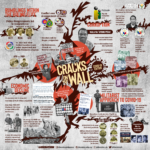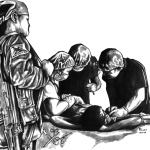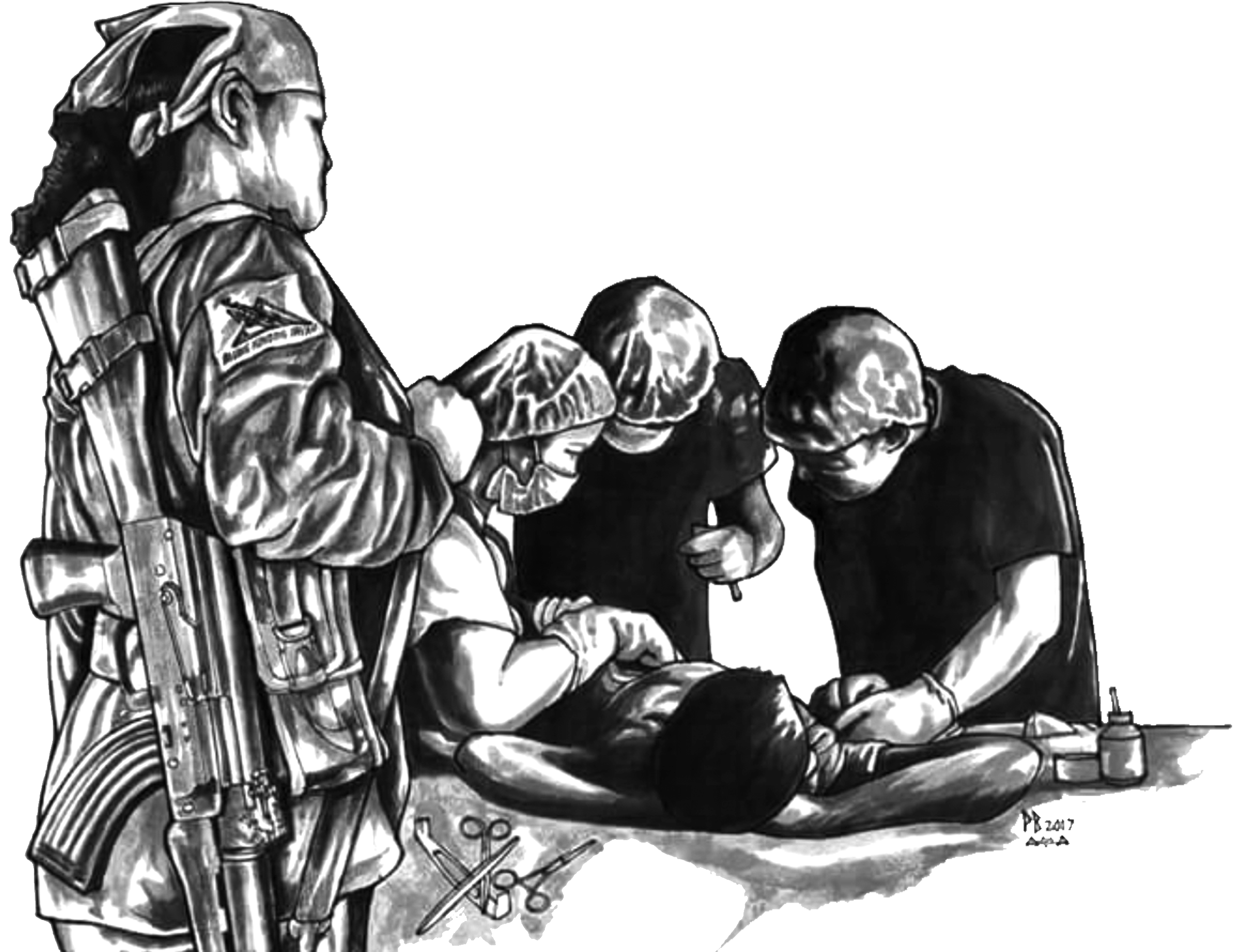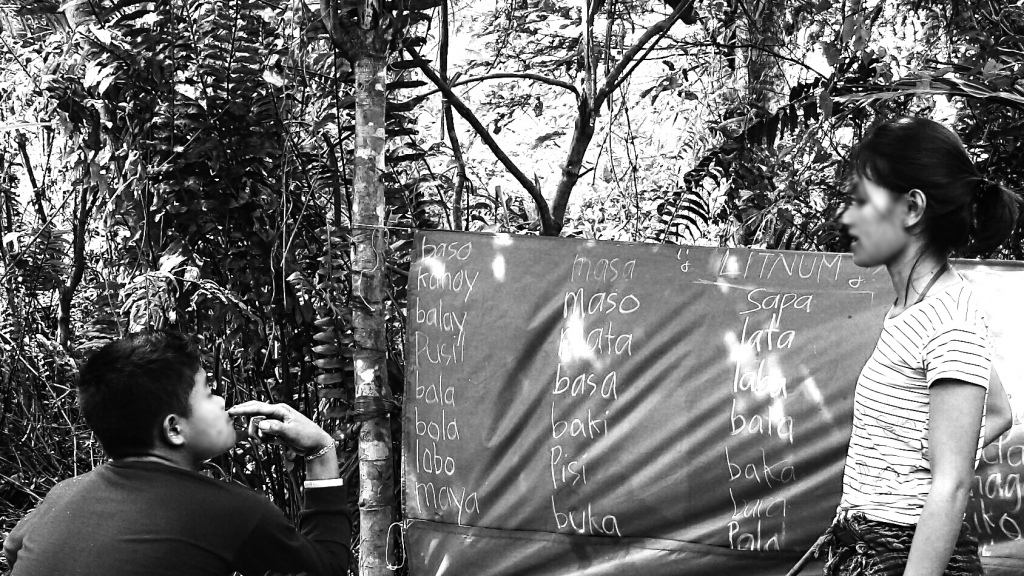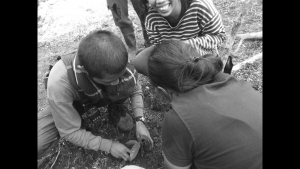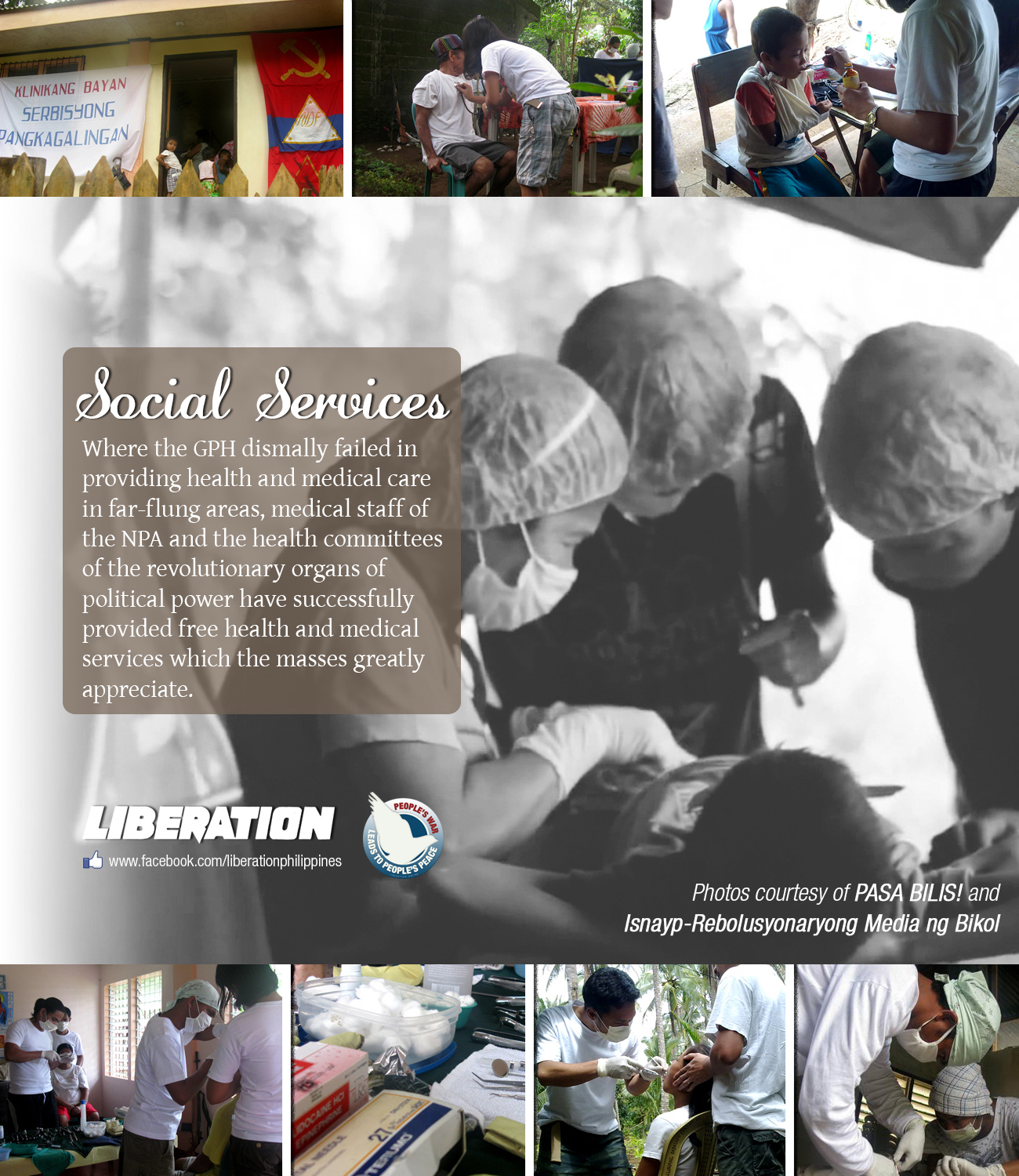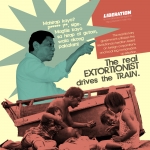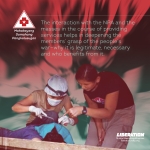Health Services Benefit Peasants, Indigenous Peoples in Guerrilla Fronts

by Pat Gambao and Iliya Makalipay
It is not uncommon for people in the remote areas in the Philippines to die without seeing a doctor in their lifetime. A child who is seriously ill, for example, had to be brought on foot to the nearest hospital, usually more than 20 kilometers away from the community. There are no clinics in the villages, and if there are, they remain as structures because there are no medical personnel from the reactionary government, not even a paramedic.
 But the scenario has slowly changed when members of the New People’s Army (NPA) double as people’s medics—holding medical missions and treating the sick as they move from one barrio to the next.
But the scenario has slowly changed when members of the New People’s Army (NPA) double as people’s medics—holding medical missions and treating the sick as they move from one barrio to the next.
The NPA medics are trained mostly by members of MASAPA (Makabayang Samahang Pangkalusugan) or the Patriotic Association of Health practitioners, an allied organization of the National Democratic Front of the Philippines (NDFP). The NPA, in turn, sets-up barrio health committees as part of their organizing work and in establishing and consolidating revolutionary mass organizations. Together, the NPA and MASAPA members fill in the vacuum left by the reactionary Philippine government, which has historically neglected the delivery of social services to the marginalized segments of the society.
Revolutionary medical practitioners
Founded in 1980’s, MASAPA is one of the pillars of the NDFP. From its inception, it has organized doctors, nurses, medical students, and others in the health sector who are based in urban centers. In an interview, MASAPA Spokesperson Blanca Luna explained that MASAPA members train the NPA on health and medical work and provide direct health services to Party members, the red fighters, and masses in the guerrilla fronts. It also maintains a network of allies in the medical field who are likewise tapped for the same activities. Traditional healers such as hilot and komadrona are also organized as they are in the frontline of health services in the communities.
In the urban centers, “MASAPA members organize and mobilize the health sector to fight for their rights to better wages, form unions in their work place and push for the people’s right to health as an integral part of the struggle for national democracy. MASAPA takes an active part in the urban mass movement and draws in the middle forces to support, directly or indirectly, the armed struggle,” Luna elaborated.
Three-tiered health training
The overall development of the revolutionary health work parallels that of the development and the requirements of the people’s war. To this, Luna explained, “the members of MASAPA should synchronize its efforts with the developments in the guerrilla fronts by reaching out to more health workers and practitioners.”
Tapping the expertise of its members and allies in the medical field and in consultation with the cadres involved in the military and mass work in the countryside, MASAPA has designed a three-tiered health training program for the NPA—which the NPA also uses to train the revolutionary masses: Basic Orientation Course, Intermediate, and Advance. The courses are all premised on preventive health care but, the advance course is geared towards developing the capabilities of the medics in the people’s army in lifesaving support system. “As the people’s war advances, so does the need to advance the capacity of the medics of the people’s army,” Luna pointed out.
The Basic Orientation Course includes first aid, sanitation, family planning, and the use of alternative medicine such as acupuncture and herbal medicine. On the ground, these translates to people’s health campaigns that include backyard gardening, herbal garden, anti-dengue drive, and construction of safe water and drainage systems. For some medics, their interaction with the indigenous peoples has introduced them to more plant-based cures for common ailments.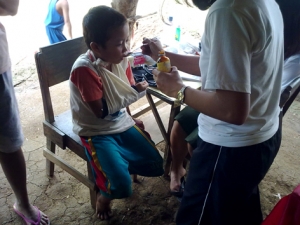
The Intermediate Course is geared towards the study of anatomy, child birthing, herbal medicine production, and special procedures that include tooth extraction, simple surgery, trauma and mental health care. A number of communities now produce their own capsules and ointments from plants and herbs.
Medics in the NPA take up the Advance Course where they are taught more elaborately about anatomy and anesthesia and to perform more complicated surgical procedures. In some regions, select health units in the NPA are now able to perform abdominal surgery, the most complicated even among those who went through medical school.
These training take about two weeks to one month, depending on the level. Trainees have at least reached the elementary level and are around 20 to 30 years old.
Urban doctors meet their counterparts
 The interest and enthusiasm of the masses and the NPA in the guerrilla fronts to learn are inspiring enough for the allies and members of MASAPA who come to the front to give their best to impart lessons not only on health care, preventive medicine and first aid but also on other nuances of medical practice.
The interest and enthusiasm of the masses and the NPA in the guerrilla fronts to learn are inspiring enough for the allies and members of MASAPA who come to the front to give their best to impart lessons not only on health care, preventive medicine and first aid but also on other nuances of medical practice.
Said interest and enthusiasm enable even the non-erudite peasants to acquire the skills of simple applications of medical care and practice. Some who had reached a relatively higher educational level than most of the masses were able to finish the three levels of medical training given by the doctors.
Ka Alex, an urban-based doctor who is among the regular instructors in these training is amazed with how they are able to pack their years of medical school into a one to two-month training modules and teach them to those who barely finished elementary school.
He is equally impressed with how the mostly peasant members of the NPA learn these medical procedures; they, who at the start of the training, only brought with them their willingness to listen and learn and their compassion to care for the sick or wounded comrades, red fighters, and masses.
When the training is over, both urban doctors and NPA medics end up fulfilled.
A medic of the NPA in Mindanao, Ka Tonyo, recalled they once performed abdominal surgery on a monkey they found in the forest. But when the monkey regained consciousness after the operation, it panicked and quickly removed the stitches on its belly, causing its death. Since then, they stopped using monkeys and opted for animals who are more placid.
Aside from rendering their expertise to develop health cadres among the NPA and among the masses, the experiences of MASAPA members in the various guerrilla fronts temper them and strengthen their commitment to the revolution and the masses. “MASAPA members do not only impart their knowledge to the red fighters but also learn from their experiences and from the lives of the masses,” Ka Alex said.
“The interaction with the NPA and the masses in the course of providing services helps in deepening the members’ grasp of the people’s war—why it is legitimate, necessary and who benefits from it,” Luna concurred.
It is not surprising, thus, that a number of MASAPA members opted to remain in the countryside and practice their knowledge and skills in the guerrilla fronts and among the masses. Experiencing the enthusiasm of the NPA members to learn medical procedures and their efforts to treat and heal their comrades and the masses are compelling reasons for the professional medical practitioners to stay in the fronts.
In the guerilla zones, MASAPA and the NPA works hand in hand in the delivery of the much-needed health services in remote villages.
Defining and developing the alternative health care system
MASAPA and NPA members have successfully provided free health and medical services to the people. The infrastructure for health services is now in place at all levels of the Party and NPA structure and in the organs of political power—from the national to the barrio levels, from squads to battalions of the NPA.
Aside from being part of the revolutionary movement’s machinery for health services, MASAPA is one of the prime movers in the development of the alternative health care program of the national democratic revolutionary movement. With the NPA, they are sowing seeds of the alternative health care system of the nation, starting in the guerrilla fronts in the countryside. ###


